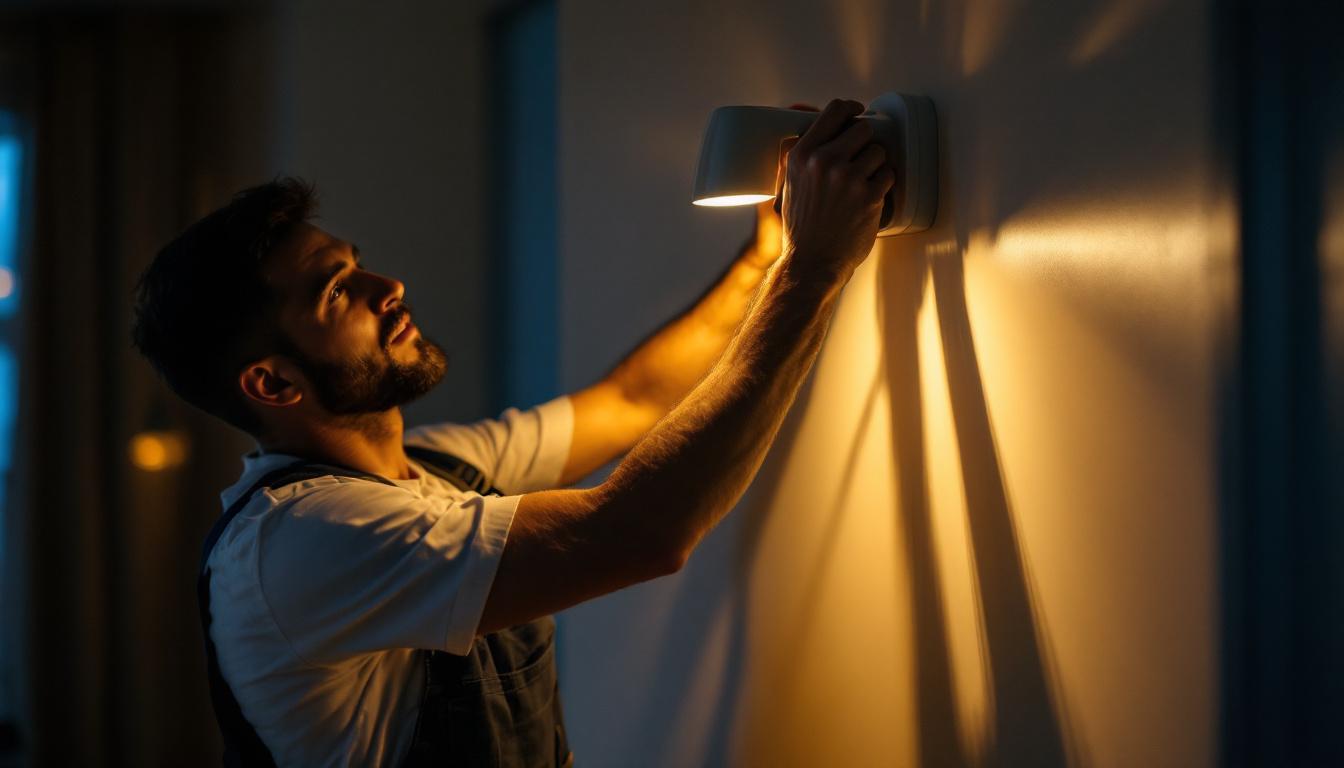
As urban landscapes continue to evolve, the demand for efficient and effective street lighting has never been higher. Lighting contractors play a crucial role in this transformation, and one of the most significant advancements in this field is the development of modern street lamp bulbs. These innovative lighting solutions not only enhance visibility but also offer energy efficiency and longevity, making them a game-changer for contractors.
Street lighting has come a long way since the days of gas lamps. Traditional incandescent bulbs were once the standard, but they have largely been replaced by more advanced technologies. The introduction of LED (Light Emitting Diode) bulbs has revolutionized the industry, providing a brighter and more sustainable lighting option.
LED street lamp bulbs are known for their energy efficiency, consuming significantly less power than their incandescent counterparts. This shift not only reduces electricity costs but also minimizes the carbon footprint associated with street lighting. For lighting contractors, understanding the evolution of these bulbs is essential for making informed decisions that benefit both their clients and the environment.
One of the most compelling reasons for lighting contractors to embrace LED technology is the multitude of benefits it offers. First and foremost, LED bulbs have a much longer lifespan compared to traditional bulbs. While incandescent bulbs may last around 1,000 hours, LED bulbs can last up to 25,000 hours or more. This longevity translates to reduced maintenance costs, as contractors will spend less time and resources replacing burnt-out bulbs.
Moreover, LED street lamp bulbs provide superior lighting quality. They emit a bright, white light that enhances visibility and safety on the streets. This quality is particularly important in urban areas where pedestrian and vehicular traffic is high. Improved visibility not only benefits drivers but also enhances safety for pedestrians, cyclists, and other road users. Additionally, many LED fixtures come with adjustable brightness settings, allowing cities to tailor their street lighting to different times of day or specific events, further enhancing safety and energy efficiency.
Energy efficiency is a significant concern for municipalities and organizations looking to reduce operational costs. LED street lamp bulbs consume up to 80% less energy than traditional incandescent bulbs. This drastic reduction in energy consumption leads to substantial cost savings on electricity bills, making LED technology an attractive option for lighting contractors working with budget-conscious clients.
Additionally, many governments and local authorities offer incentives for upgrading to energy-efficient lighting solutions. These incentives can further reduce the initial investment costs for contractors and their clients, making the transition to LED street lamp bulbs not only environmentally responsible but also financially advantageous. Furthermore, the reduced energy consumption associated with LED technology contributes to a decrease in greenhouse gas emissions, aligning with global efforts to combat climate change. As more cities adopt smart city initiatives, integrating LED street lighting with smart technology can also facilitate remote monitoring and control, optimizing energy use and enhancing the overall efficiency of urban infrastructure.
While the benefits of LED street lamp bulbs are clear, lighting contractors must also consider various factors during the installation process. Proper installation is crucial to ensure that the bulbs perform optimally and provide the intended benefits.
One critical aspect is the selection of the right wattage and lumens for specific applications. Different areas may require different levels of brightness, and contractors must assess the needs of each location to determine the appropriate bulb specifications. This assessment can involve evaluating factors such as traffic patterns, pedestrian activity, and surrounding infrastructure. For instance, busy intersections may necessitate higher lumens to ensure safety and visibility, while quieter residential areas might benefit from softer lighting to create a more inviting atmosphere.
Another important consideration is the compatibility of LED bulbs with existing fixtures. Many older street lighting systems may not be designed to accommodate the unique characteristics of LED technology. Contractors should evaluate whether retrofitting existing fixtures is feasible or if a complete replacement is necessary. This decision can impact both the cost and timeline of the project. In some cases, it may be possible to retrofit existing fixtures with LED components, which can be a cost-effective solution for clients. However, ensuring that the fixtures are compatible with LED technology is essential to avoid issues such as overheating or inadequate light distribution.
Moreover, contractors should also consider the physical dimensions and design of the existing fixtures. Some older fixtures may not provide adequate housing for the new LED components, leading to potential installation challenges. Additionally, the aesthetic appeal of the lighting system should not be overlooked; maintaining a uniform look in the streetscape can enhance the overall ambiance of the area. Therefore, it may be beneficial to explore a range of LED options that align with both performance and design requirements.
Lighting contractors must also be aware of local regulations and standards related to street lighting. Different municipalities may have specific requirements regarding light levels, color temperature, and even the types of fixtures that can be used. Familiarity with these regulations is crucial to ensure compliance and to avoid potential fines or project delays.
Contractors can benefit from engaging with local authorities early in the planning process to clarify any regulations and obtain necessary permits. This proactive approach can help streamline the installation process and ensure that the project meets all legal requirements. Additionally, understanding the local community’s preferences and concerns can aid in the selection of lighting solutions that not only comply with regulations but also resonate with residents. For instance, some communities may prioritize energy efficiency and sustainability, while others might focus on enhancing safety and visibility. By aligning the project with community values, contractors can foster goodwill and support for the installation efforts.
The lighting industry is constantly evolving, and staying ahead of trends is essential for contractors looking to remain competitive. One significant trend is the integration of smart technology into street lighting systems. Smart street lighting solutions allow for remote monitoring and control, enabling municipalities to adjust lighting levels based on real-time conditions.
These systems can also contribute to energy savings by dimming lights during low-traffic periods or adjusting brightness based on ambient light levels. For lighting contractors, understanding how to implement smart lighting solutions can open up new opportunities and enhance the value they provide to clients.
As cities strive to become smarter and more sustainable, the role of street lighting is evolving. Smart city initiatives often include the integration of street lighting with other urban infrastructure, such as traffic management systems and public transportation networks. This interconnected approach not only improves efficiency but also enhances the overall quality of life for residents.
Lighting contractors who are knowledgeable about smart city concepts can position themselves as valuable partners in these initiatives. By offering innovative lighting solutions that align with smart city goals, contractors can differentiate themselves in a competitive market.
As concerns about climate change and environmental sustainability continue to grow, the demand for eco-friendly lighting solutions is increasing. Contractors who prioritize sustainability in their projects can appeal to environmentally conscious clients and organizations. This includes not only the use of energy-efficient LED bulbs but also considerations for the materials used in fixtures and the overall design of lighting systems.
Incorporating sustainable practices into street lighting projects can involve selecting recyclable materials, minimizing waste during installation, and ensuring that lighting systems are designed for longevity. By adopting these practices, contractors can contribute to a greener future while also enhancing their reputation in the industry.
Despite the many advantages of modern street lamp bulbs, lighting contractors may encounter challenges during the transition to LED technology. One significant hurdle is the initial cost of upgrading existing systems. While the long-term savings on energy and maintenance are substantial, the upfront investment can be a barrier for some clients.
Contractors must be prepared to educate clients about the long-term benefits of LED lighting and help them navigate financing options or incentives that may be available. Building a strong case for the value of upgrading can help overcome resistance to change.
As technology continues to advance, ongoing training and skill development are essential for lighting contractors. Understanding the intricacies of LED technology, smart lighting systems, and installation best practices is crucial for delivering high-quality services. Contractors should seek out training opportunities, workshops, and industry certifications to stay informed about the latest developments in the field.
Investing in the professional development of staff not only enhances the quality of work but also builds trust with clients. A knowledgeable team can provide valuable insights and recommendations, positioning the contractor as a trusted expert in the industry.
The lighting industry is becoming increasingly competitive, with new players entering the market regularly. Contractors must differentiate themselves by offering unique value propositions, whether through exceptional customer service, innovative solutions, or competitive pricing. Understanding market dynamics and staying attuned to industry trends can help contractors identify opportunities for growth and expansion.
Networking with other professionals in the industry, attending trade shows, and participating in local business organizations can also provide valuable insights and connections that can lead to new projects and collaborations.
The evolution of street lamp bulbs, particularly the rise of LED technology, represents a significant opportunity for lighting contractors. By embracing these advancements, contractors can enhance their service offerings, reduce costs for clients, and contribute to a more sustainable future.
As the industry continues to evolve, staying informed about trends, regulations, and best practices will be essential for success. The transition to modern street lighting solutions is not just a technical upgrade; it is a commitment to improving urban environments and enhancing the quality of life for communities.
Lighting contractors who adapt to these changes and prioritize innovation will not only thrive in a competitive market but also play a vital role in shaping the future of urban lighting.
Ready to harness the power of LED technology and elevate your lighting projects? At LumenWholesale, we provide lighting contractors with the highest quality, spec-grade street lamp bulbs at unbeatable wholesale prices. Say goodbye to local distributor markups and hello to a vast selection of reliable, high-performance lighting that meets the strictest industry standards. With the convenience of free shipping on bulk orders, you can secure premium lighting solutions at the best value — all without hidden fees or compromises. Enhance your service offerings and contribute to a brighter, more sustainable future with LumenWholesale. Wholesale Lighting at the Best Value

Discover how high bay LED lighting can be a game-changer for lighting contractors looking to win more bids.

Discover essential tips and best practices for lighting contractors when installing exit sign black fixtures.

Discover essential strategies and expert tips for lighting contractors to efficiently manage and install 3 post switch systems.

Discover essential tips and best practices for lighting contractors in selecting and installing replacement light fixtures.